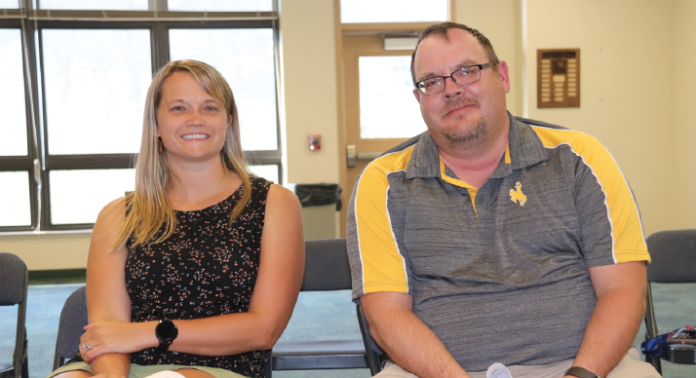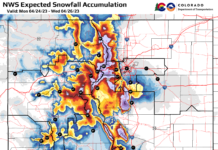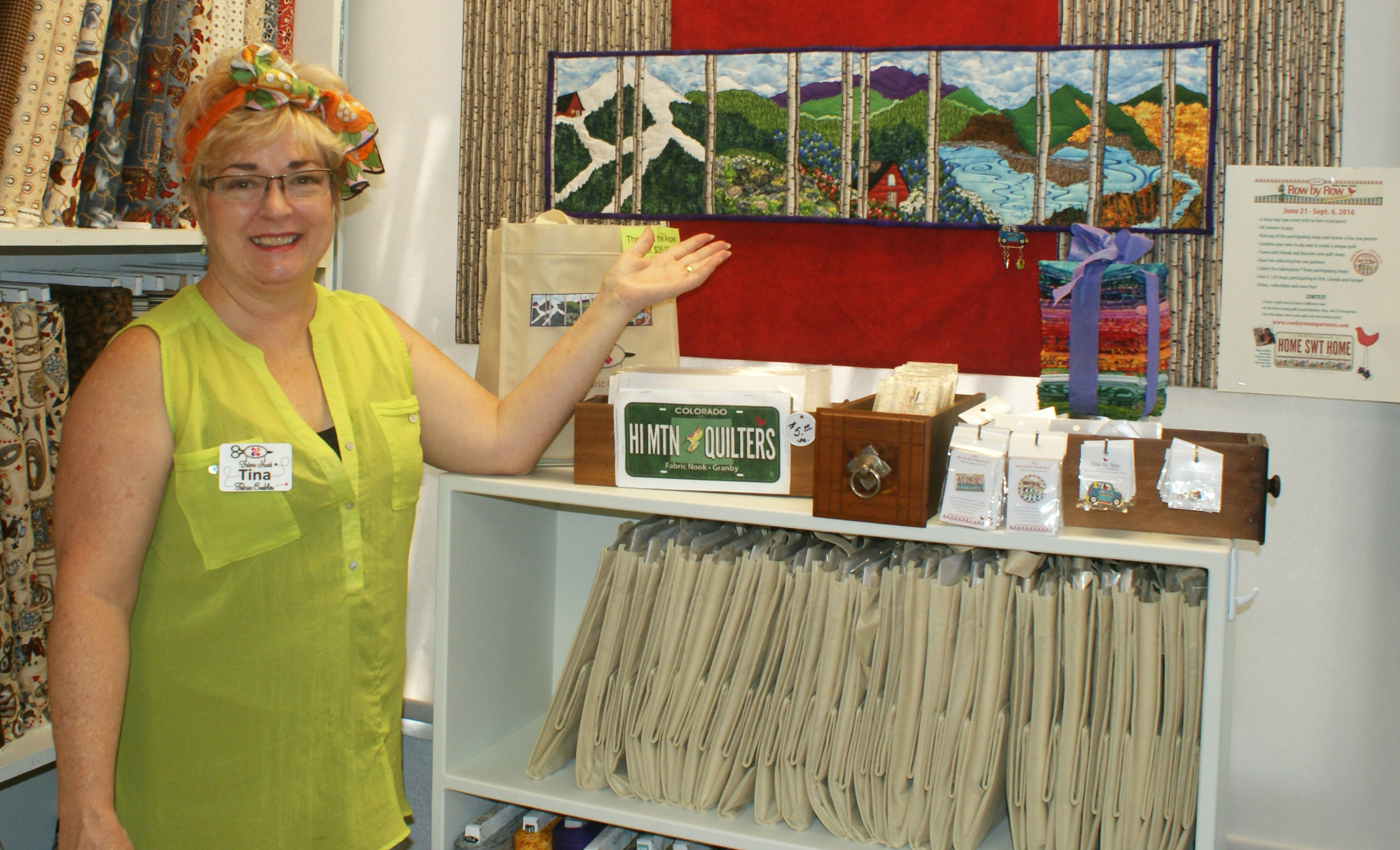
by Meg Soyars
2020-2021 was a hectic school year for students, faculty, and staff all over the country, and West Grand School District wasn’t spared the struggle. As WGSD prepares for a new year and new beginnings, K-8 principal Jack Daly and high school principal Liz Bauer are both hopeful yet aware of the challenges their district faces. Although the pandemic may be over, a staffing shortage remains to be resolved.
“We’re short in every department, and if we don’t fill them, it’ll impact opportunities for the kids,” Jack Daly stated. He explained how the labor shortage has been a long-term problem, with less and less people pursuing teaching degrees each year. “This has been going on in education for the past 10 years, but the pandemic just exacerbated our already small labor pool and made things worse in rural areas,” Daly continued. “It got bad so quickly that schools haven’t been able to come up with solutions.”
The pandemic was difficult on everyone, but especially for those who consider education their calling in a rural mountain town. “We have people who are highly qualified but have decided to step away from the profession for a few years,” Daly conceded. He added that on top of providing the best education to their students, teachers were also tasked with enforcing masks and other health requirements that changed constantly as Covid-19 evolved.
“The pandemic put an extra layer of stress on staff,” Daly stated. “Then you add that to everything else, like trying to afford to live here.”
Daly explained that other regions in Colorado have designed teacher-specific housing. For example, Glenwood Springs has an apartment building for teachers, and North Park’s Board of Education has bought two new trailers. Unfortunately, West Grand hasn’t caught up to that point yet. “Everything costs money,” Daly stated. “With the fire, the high cost of building materials, and trying to find employees during the pandemic, affordable housing is not being addressed in our area.”
This has prompted some locals in West Grand to step up to mitigate the housing crisis on their own.
“We do have some great individuals who rent to teachers and give them reasonable rates. They’re renting below market value,” Daly said. “I can’t say enough about the members of our community. They’re doing all they can to support us and make it possible for staff to live here.”
While these individuals provide housing opportunities for teachers, more still needs to be done, especially in regards to teachers’ wages. Daly said 3 teachers & staff had to turn down his job offers because they couldn’t find housing they could afford. Daly predicts that unless the school district is able to pay educators significantly more, schools will eventually have to build their own teacher housing. “You’ve got to give them the ability to live and feel appreciated,” he said. “Teachers fall into the donut hole of making just enough money to not qualify for any [government] assistance, but not enough money to be able to live.”
Daly explained that although West Grand’s cost of living continues to rise, teacher’s pay does not rise with it. A new teacher with a BA typically starts at 36k, with higher wages based on additional accreditations.
“The surrounding schools pay more money than us. It’s hard to compete with other school districts,” Liz Bauer said. She explained
that housing costs might be high in other districts, but they offer a higher salary to match the cost.
“East Grand just gave a significant increase to their staff because of their cost of living,” Daly said. “They passed a ballot initiative in which they get an additional 1 million dollars that went directly to salaries.” Neighboring states are doing a better job, too. “Wyoming, on average, pays $10,000 more to a first-year teacher,” Daly added. “And then they don’t have state income tax. It’s pretty tough for us to compete.”
“We want to offer our kids everything; we want to give them the world and have them experience all these great things, but when it comes down to it, money can be a deciding factor,” Bauer said. “For rural, small schools like us, it’s tough. We’re doing the best we can for the kids with what we have […] I would love my staff and all the faculty to have more money, but I can’t control that.”
WGSD, along with other rural districts in Colorado, is overlooked by state lawmakers. This directly affects teachers’ pay. “The increase in teacher’s wages is all locked into state funding,” Daly said. “There’s a limited amount of money and [school funding] is not as flashy.” Based on its wealth, Colorado is one of the lowest funded states in the nation, yet their students
out-perform other states.
“When you look at Colorado, it has one of the most highly educated populations, but most educated people are moving in from out of state,” Daly said. “Our schools perform better than what their funding is, and I think this encourages the legislator to not fund us. We’ve been able to get by, but it’s tough for the kids.”
He explained that lawmakers lack understanding of what challenges rural areas are facing. “You see that in education, in agriculture, and in recreation. Our legislature does not understand the rural areas,” he said.
“Our state is being run by 5 or 6 counties on the front range, and their reality is not the same as our reality.”
Daly added that on top of lower wages for teachers, they are also set to a higher standard than non-professional jobs. “Teachers have to meet all these qualifications, and they should, because they are educating kids,” Daly said. “The legislator keeps adding new qualifications to them, but no benefits.” For example, the K-3rd grade teachers need to take a 45-hour class by fall of 2022 or the school loses funding. “We’re trying to support them to do this through the school, but the state has given them nothing extra. It’s pretty common that the state adds on to teachers’ requirements but doesn’t support them in a productive way. So the districts are being creative and looking at other ways of increasing their funding.”
Daly added that districts are always looking into grants, and a tax override or mill levy in the upcoming elections is possible. “We’re doing everything we can to make sure our kids are educated at the highest level possible,” he said. Plus, there is good news on the horizon. This year’s legislative session passed an increase in school funding to remedy the significant budget cuts of the 2020-21 year. Compared to last year, there will be an 11% increase in funding for WGSD, from $9,771 per pupil to $10,890 per pupil. Although this is still about $3,600 below the national average, it marks a step in the right direction.
There are other positive changes for the upcoming school year, too. Now that people can travel normally again, Daly can start hosting more in-person interviews. During the pandemic, Daly struggled to find staff because interviews were conducted virtually and candidates did not get a chance to tour Kremmling. “When I can get teachers to interview here, I can introduce them to the community and show them around, so they usually agree to teach here. The community is wonderful […] very supportive and welcoming,” Daly said.
All in all, it’s shaping up to be a much more normal school year. “I think it’s important for us to reestablish all the good things we’re doing,” Bauer said. “A lot of focus last year was on the negative things. People were upset, not just with the school, but with Covid
and society. It was a hard year for us.” Bauer emphasized that, despite labor shortages, there’s much to look forward to.
“The people who are here now will love the kids and support them,” Bauer continued. “They’re not here because they are getting paid so much money, because they’re not. They’re here because they are committed to these kids.”
She’s glad to have more volunteers in the building and start up activities with less restrictions. “We’re excited to start fresh, do all those fun high school things, and have relationships with the community built once again,” Bauer said. Last week, the Colorado Dept. of Health also lifted mask mandates for all students next fall, provided cases remain low.
Bauer admitted that WGSD can’t control what public health may dictate next year or how much funding they get from the legislature. “But we can control how we interact with these kids and the lessons that we teach them. I’d love for us to focus on that again,” Bauer emphasized.
“We have a really great community with great kids, and we have an opportunity to do better. I’m looking forward to that opportunity.”
For those interested in volunteering or applying to work at WGSD, please visit www.wgsd.us. The following teaching positions are open– K-8: Paraprofessional, Language Arts, Science/Math. High School: Spanish, Computer Science/Engineering. There are also numerous district, support staff, and substitute teaching positions available.








